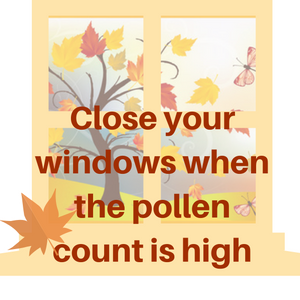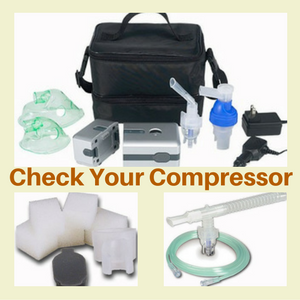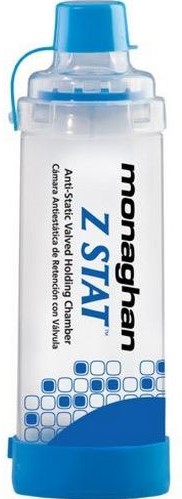
 Allergies are not just for spring and summer. Fall might mean Pumpkin Spice Lattes for most of us but for some it means increased allergy symptoms. Allergies can cause nasal and sinus issues but it can also mean breathing and respiratory complaints. Wheezing and asthma flare ups are to be expected when fall allergy symptoms hit. Respiratory care is important all year long but it is even more important when your allergies are active! What can you do to make this allergy season better?
Allergies are not just for spring and summer. Fall might mean Pumpkin Spice Lattes for most of us but for some it means increased allergy symptoms. Allergies can cause nasal and sinus issues but it can also mean breathing and respiratory complaints. Wheezing and asthma flare ups are to be expected when fall allergy symptoms hit. Respiratory care is important all year long but it is even more important when your allergies are active! What can you do to make this allergy season better?
Tips to Manage Fall Allergy Symptoms
 Peak pollen count is generally late morning or midday, during these high volume times try and stay indoors as much as possible. Check your local weather and keep yourself updated on your air quality. Keep windows and doors closed as much as you can to lessen your pollen contact. Make sure the inside of your home is free of dust and mold. Check any area that is damp and clean thoroughly.
Peak pollen count is generally late morning or midday, during these high volume times try and stay indoors as much as possible. Check your local weather and keep yourself updated on your air quality. Keep windows and doors closed as much as you can to lessen your pollen contact. Make sure the inside of your home is free of dust and mold. Check any area that is damp and clean thoroughly.
Prep your place! Always use a certified HEPA filter in your heating system to cut down on indoor pollen, dust, and mold. Before you switch from air conditioning to heat, clean all your vents and if possible, clean your ducts as well. Anytime you are doing lawn work outside try and wear a particulate respirator mask to cut down on your lung's contact with mold spores that can hide in leaf piles. It is a good idea to avoid wood or leaf smoke, a bonfire may sound fun but can mean being exposed to some extremely strong irritants and pollutants. Your upper respiratory system will thank you.
Check Your Asthma and Respiratory Care Equipment:
 Make sure you have your compressor and nebulizer system in full working order. You will want to check the air inlet filters and change them if needed. Write down when you change the filter and when you change your nebulizer kit on an index card so you don't forget when they are due to be replaced. Tape the index card to your compressor so you don't have to remember the date. Remember, if your nebulizer and filters are dirty and full of mold, they become detrimental to optimal breathing treatments. Make sure your battery is working properly and your cords are in good order. If you use Addipak unit dose saline to help nebulize your medicine properly remember to check your supply at home so you don't run out. You can also make sure your compressor is running properly by using a liter meter. It is a small tool that makes sure your compressor is in top shape for producing an aerosol cloud (check the out-put with your machine specs equal to or greater than 7 lpm).
Make sure you have your compressor and nebulizer system in full working order. You will want to check the air inlet filters and change them if needed. Write down when you change the filter and when you change your nebulizer kit on an index card so you don't forget when they are due to be replaced. Tape the index card to your compressor so you don't have to remember the date. Remember, if your nebulizer and filters are dirty and full of mold, they become detrimental to optimal breathing treatments. Make sure your battery is working properly and your cords are in good order. If you use Addipak unit dose saline to help nebulize your medicine properly remember to check your supply at home so you don't run out. You can also make sure your compressor is running properly by using a liter meter. It is a small tool that makes sure your compressor is in top shape for producing an aerosol cloud (check the out-put with your machine specs equal to or greater than 7 lpm).
 Another great tool to have on hand is a MDI spacer or valved holding chamber. I always thought they were all called "aero-chambers" but apparently, that is a brand. For instance, Monaghan Z Stat, which looks and acts like an "aero-chamber" is actually called a "valved holding chamber or spacer." Aero-chamber is just a brand name, like Kleenex for tissues! You can get Monaghan Z Stat with a mask or without. This is a great way to make sure you are getting the full dose of medicine from your puffer or inhaler. Your treatment plan won't work very well if you aren't getting the proper level of medication.
Another great tool to have on hand is a MDI spacer or valved holding chamber. I always thought they were all called "aero-chambers" but apparently, that is a brand. For instance, Monaghan Z Stat, which looks and acts like an "aero-chamber" is actually called a "valved holding chamber or spacer." Aero-chamber is just a brand name, like Kleenex for tissues! You can get Monaghan Z Stat with a mask or without. This is a great way to make sure you are getting the full dose of medicine from your puffer or inhaler. Your treatment plan won't work very well if you aren't getting the proper level of medication.
Whether fall has your nose running, your eyes itching, or your asthma flaring up, with some careful planning and home preparation you can enjoy the changing season without fearing your allergy symptoms. Always check with your personal medical care team if you have any questions about your care. Be your own advocate! Your doctor or nurse can help you have the best fall yet!


